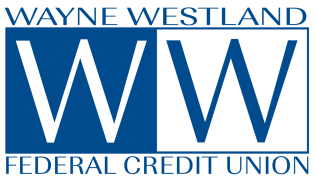Tracking personal expenses is an important habit to cultivate for any independent adult. By tracking your expenses, you can build a budget and find ways to make sure you don’t live outside your means. However, as anyone who’s attempted to track their expenses knows, it can be overwhelming at first. Here’s a process to make it easier.
Create a spreadsheet. There’s lots of great budgeting software out there, but a plain-old spreadsheet is just as good if you know what you’re doing. There are free options online, just search for “free spreadsheet.” Get started by listing some main categories, such as “bills,” “groceries,” and “clothing.” Your spreadsheet doesn’t need to be perfect, just an outline that provides some structure. You can tweak it as needed.
Start a little at a time. You don’t need to do it all at once. Just block-out three hours at the end of every week to focus on the project. At first, you might end your sessions feeling like there’s a lot left undone. Before long though, you’ll feel like three hours is much more time than you need.
Set aside two folders for receipts. One folder is for the week’s receipts that have not been entered into your spreadsheet; the other is for receipts already logged. Always make sure you get a receipt for every transaction. As soon as you get home, collect new receipts in chronological order in your unlogged folder.
Fill out your categories. If you use a credit or debit card, you probably have access to a running list of all your purchases. From these lists and your collection of receipts, transfer every line item (date, item, cost) into one of your categories. As you do this, you’ll probably find that you need to adjust the categories to fit your actual purchases.
Start your budget by focusing on recurring expenses. Recording every item from every receipt is something you only need to do at first. Soon enough, you’ll notice recurring purchases (probably in your “grocery” and “bills” categories). They may recur daily, weekly or monthly, and they probably make up the most significant portion of your spending. Once you’ve identified them, you can further refine your spreadsheet so that you record these expenses much more quickly. For example, if you have a cup of coffee from the same roaster every day, you can just assume that expense instead of sorting through each of your daily receipts.
Next, focus on changes. Once your recurring expenses are in order, you can spend your time on nonrecurring items or changes in price to your usual purchases. This will be a much quicker process than at the beginning when you copied over every line item. You’ll probably finish before your three hours is up.
Review what you find. When you start finding you have that extra time, don’t step away from your computer just yet. Look over your expenses and budget. Are you happy with your spending? Would you rather spend less on morning coffees and more on your weekend entertainment? Think about how you can shift your expenses to improve your quality of life.
That’s all there is to it! Remember, it’s only a few hours a week, so don’t skip it. Once tracking your expenses has become a strong habit, you’ll feel confident in your financial independence!
Original Source: http://lmcu.frc.finresourcecenter.com/Financial_Planning_78896.html?article_id=2345


